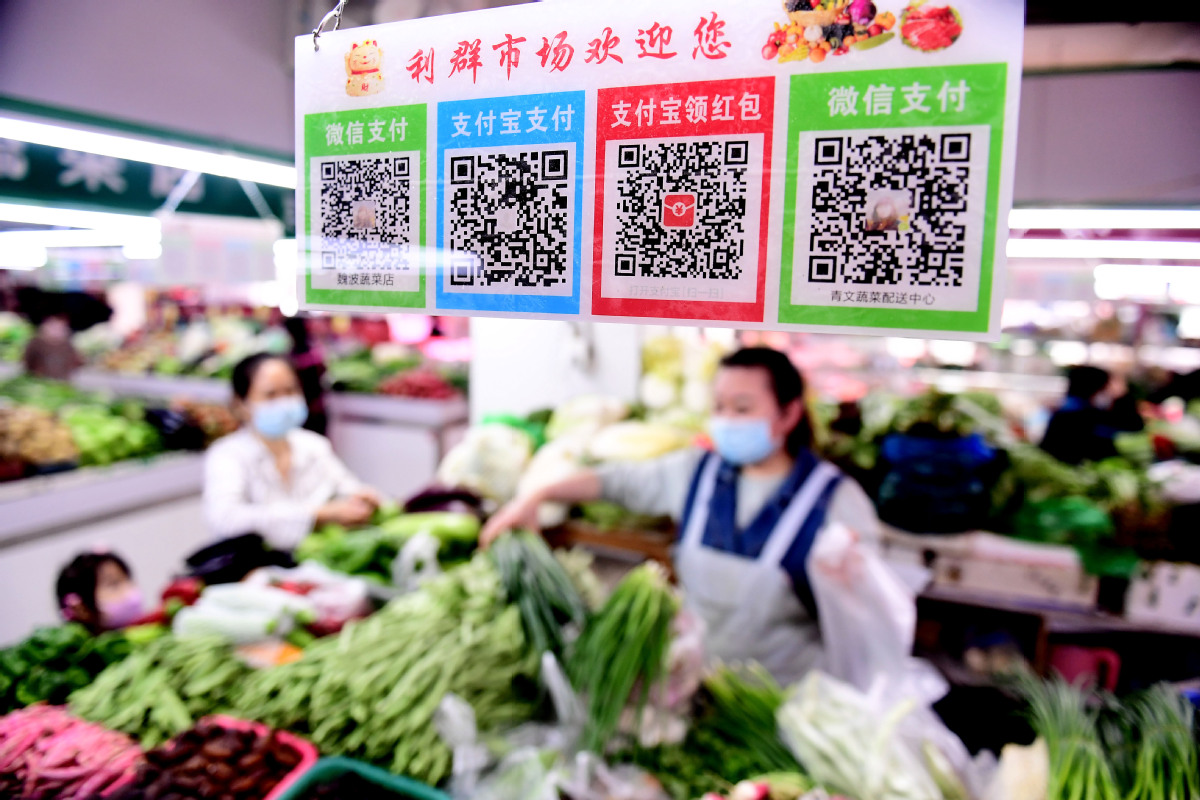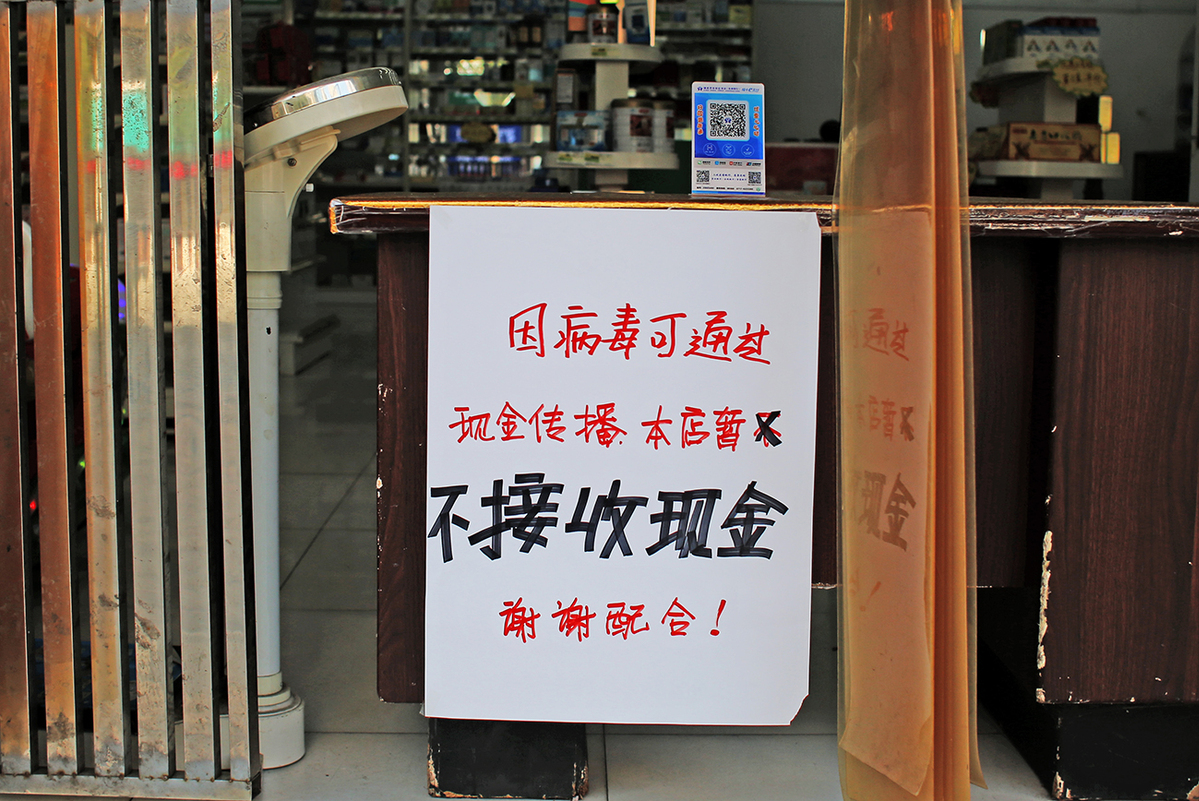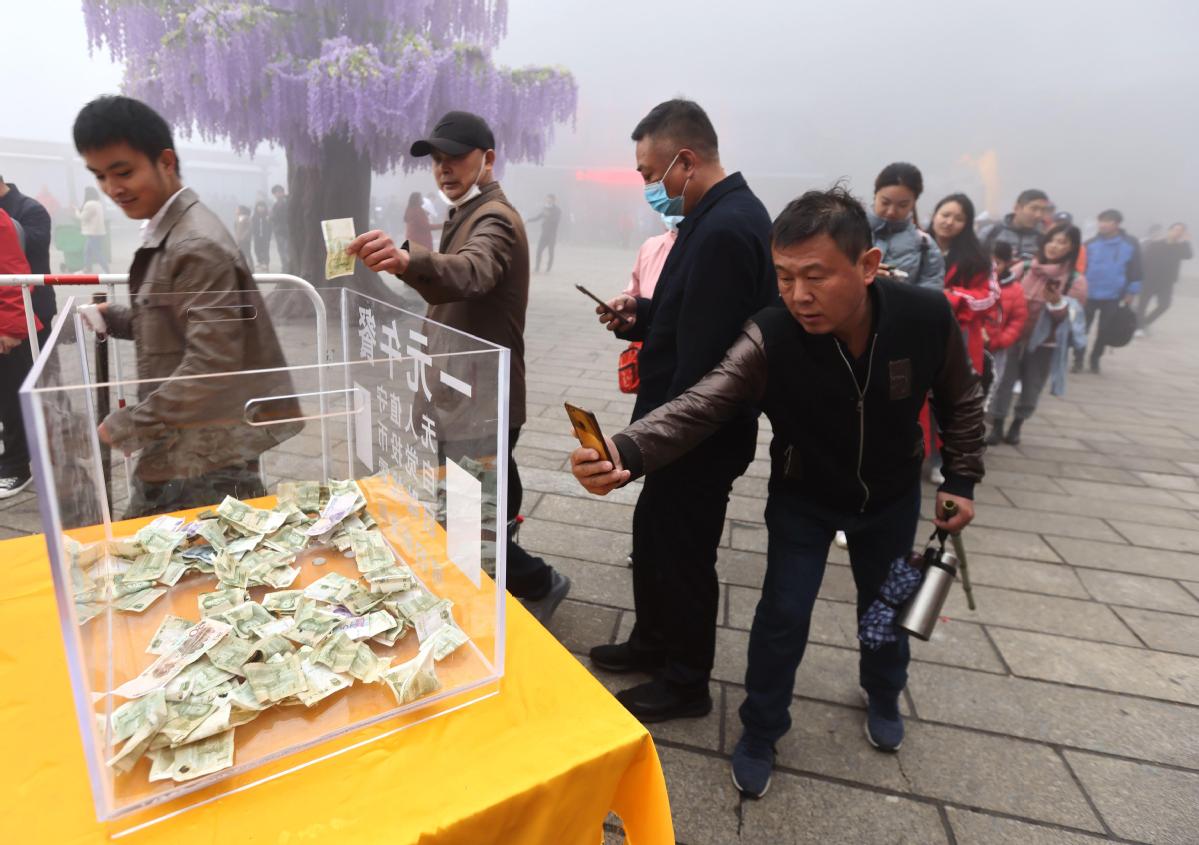Digital currency to change financial world
Digital currency, especially that issued by central banks, is poised to challenge existing payment methods by offering faster and more convenient ways to settle transactions.

Customers at a vegetable market in Shenyang, Liaoning province, are encouraged to use electronic payment. [Photo provided to China Daily]
A digital currency designer from the PBOC said that with bank branches being closed, in tandem with a decline in the use of ATMs and point-of-sale terminals, it is important to ensure that people, especially those living in remote and poor villages, have an equal opportunity to use the new form of currency.
These people, who rarely use electronic payments, still rely on physical cash and are known as the "disadvantaged group of digitalization", the designer said, adding that any mandatory order to force this group to use innovative digital payment solutions would be unfair.
It will be possible to exchange digital renminbi for cash at qualified commercial banks or through ATMs, he added. The PBOC has said no fee will be charged for such transactions.
Yves Mersch, a member of the European Central Bank's executive board, said: "To write off the role of banknotes and coins would be a mistake. The public's commitment to cash remains strong and is getting stronger."
A survey by the ECB found that most people in the eurozone do not want a cashless society. Nearly 80 percent of point-of-sale transactions in the currency zone are conducted in cash, along with more than 50 percent of payments.

A notice stating "no cash during the pandemic due to the virus" is posted at the entrance to a store in Yichang, Hubei province. [Photo/For China Daily]
According to financial analysts, central banks worldwide should have a good mix of paper notes and digital currency, and should also expect cash to remain in circulation. Security is the major consideration, as cash is viewed as being safer in areas where digital technology is less-developed, they said.
Encik Abdul Rasheed Ghaffour, deputy governor of the Central Bank of Malaysia, said, "In addition to facilitating payments, cash has been a powerful instrument for central banks to build trust and credibility with the public.
"Notes issued by central banks provide us with a direct and tangible link to the people. If we were to go completely cashless, central banks might lose this traditional means of maintaining a strong brand."
However, the PBOC's Mu said the situation in China may be different. Although the central bank has not yet disclosed statistics, use of cash has fallen significantly. In view of potential retail sales growth, the amount of digitalized money in circulation should be sufficient to act as backup to electronic payment systems in case they encounter financial or operational risks, Mu said.
He added that the bank will continue to supply notes and coins. As a public commodity, digital currency will also be used in smarter ways, such as through eyeglasses or other intelligent wearable devices, not just smartphones.

Visitors use cash and mobile payment to buy food at the Laojunshan scenic spot in Luoyang, Henan province. [Photo/China News Service]
Analysts said the COVID-19 pandemic has changed financial habits, with physical contact yielding to contactless solutions. This could further fuel the rush toward a cashless society. However, just like physical banknotes, digital currency also faces the problem of counterfeiting.
Wang Yongli, former vice-president of the Bank of China, said retaining physical money may save costs for the central bank to some extent.
But the issuance and operational systems required for the digital renminbi will definitely change the currency structure of the payment service sector, having an influence on bank card issuers and non-bank payment institutions in particular, Wang said.

